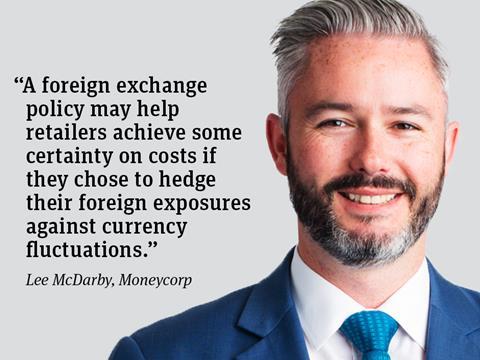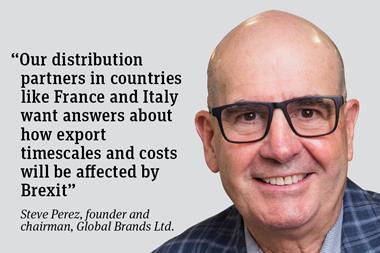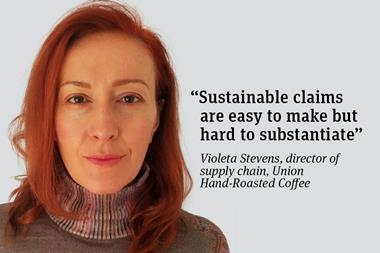The entire retail chain is facing uncertainty on a number of fronts, from Brexit to inflation and the drop in sterling. British manufacturing is currently in growth, in part due to the weaker pound making exports more attractive, but for retailers the cost of imports is rising. The Institute for Fiscal Studies has highlighted that 30% of food bought in the UK is currently imported, mainly from the EU. The IFS states “it is likely tariffs will be imposed” if a free-trade deal with Brussels is not achieved.

However, Brexit is not the only factor influencing the pound. Political events across Europe have an impact, as seen this year when the euro strengthened after pro-EU candidate Emmanuel Macron won the French election. The upcoming German election isn’t set to be so dramatic a clash of ideologies as seen in France and earlier this year in the Netherlands. Germany is, in general, a pro-EU nation and the key candidates are all maintaining they will keep the country’s strong position in Europe. But the pound is also impacted by the dollar and that may be harder to predict due to Trump’s style of leadership and the air of uncertainty.
With shoppers looking for certainty as they manage increasingly squeezed budgets, it’s not an option for retailers to let their prices fluctuate as much as the currency, while maintaining their prices during this period could lead to trading at a loss.
Food and drink prices are rising across the UK. In March, Sainsbury’s stated that rising import costs could push prices even higher because the impact of cost-price pressure “remains uncertain”. A foreign exchange policy may help retailers achieve some certainty if they choose to hedge their foreign exposures against currency fluctuations. This may have the added benefit of allowing them to offer customers fixed prices. One alternative would be to set up a forward contract that allows a business to fix a prevailing exchange rate for up to two years. This allows for accurate forecasting of costs within a financial year and means retailers can manage prices and customer expectations without taking a hit on their margin, although a forward contract may require a deposit.
Another tactical measure that may form part of a foreign exchange strategy is a limit order. This allows a company to target a specific exchange rate, and if this rate is achieved a deal is automatically booked on the customer’s behalf. Techniques such as these, or methods such as setting up a currency account for import payments and using real-time data from online accounts, can help to maintain fixed costs.
The only certainty at the moment is that the foreign exchange will continue to fluctuate, and industry is expecting increased trade friction with Brexit. This is why it’s so important for organisations to plan ahead to mitigate currency fluctuations. Prior to raising prices or becoming resigned to squeezed margins, a clear foreign exchange policy can help organisations to manage risk without cutting off opportunities.
Lee McDarby is MD, corporate foreign exchange and international payments, at Moneycorp



















No comments yet